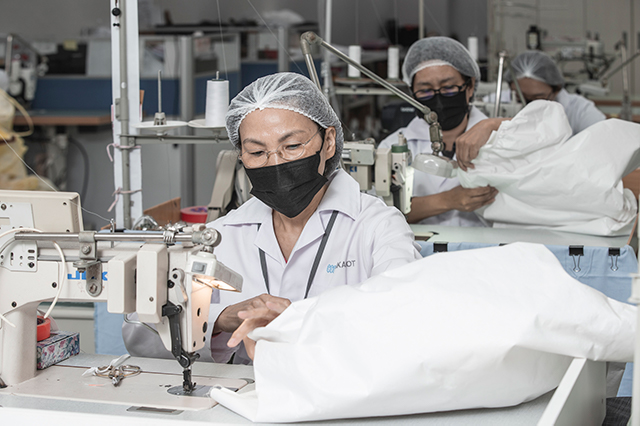In August 2019, 181 CEOs at The Business Roundtable committed to lead their companies for the benefit of all stakeholders – customers, employees, suppliers, communities and shareholders via new Statement on the Purpose of a Corporation. Less than six months on, and the commitment is being put to the test.
COVID-19 and the societal, political, and economic chaos caused by it has posed significant challenges for businesses to act responsibly and respect human rights. The same CEOs have to strike the right balance between managing competing responsibilities towards their employees, suppliers, customers and investors as they absorb deficits and stable cashflow. However, leaders are distinguishing themselves from laggards amidst this ambiguity and seeking to rise to the challenge to contribute positively. At the same time, an increase in layoffs and labour rights abuses is noted widely. Additionally, large corporations and corporate lobbies have taken advantage to weaken regulations for profits.
As part of the United Nations Virtual Forum on Business and Human Rights, IHRB's Salil Tripathi offers responses to questions including: What does it mean to act responsibly during COVID-19? How does this relate to core business activities, employees, suppliers, consumers, and society?
Featuring
- Salil Tripathi, Institute for Human Rights and Business (IHRB)
- Namit Agarwal, World Benchmarking Alliance (WBA)
- Anisha Rajapakse, Fair Labour Alliance (FLA)
- Josephine Satyono, Global Compact Network Indonesia
- Sophia Areias, United Nations Development Programme (UNDP)
- Cynthia Peterson, Petroliam Nasional Berhas (PETRONAS)





























How should businesses respond to an age of conflict and uncertainty?
As 2024 began, European Commission President Ursula von der Leyen aptly summed up our deeply worrying collective moment. As she put it, speaking at the annual World Economic Forum in Switzerland, we are moving through “an era of conflict and...
26 March 2024 | Commentary
Commentary by Scott Jerbi, Senior Advisor, Policy & Outreach, IHRB